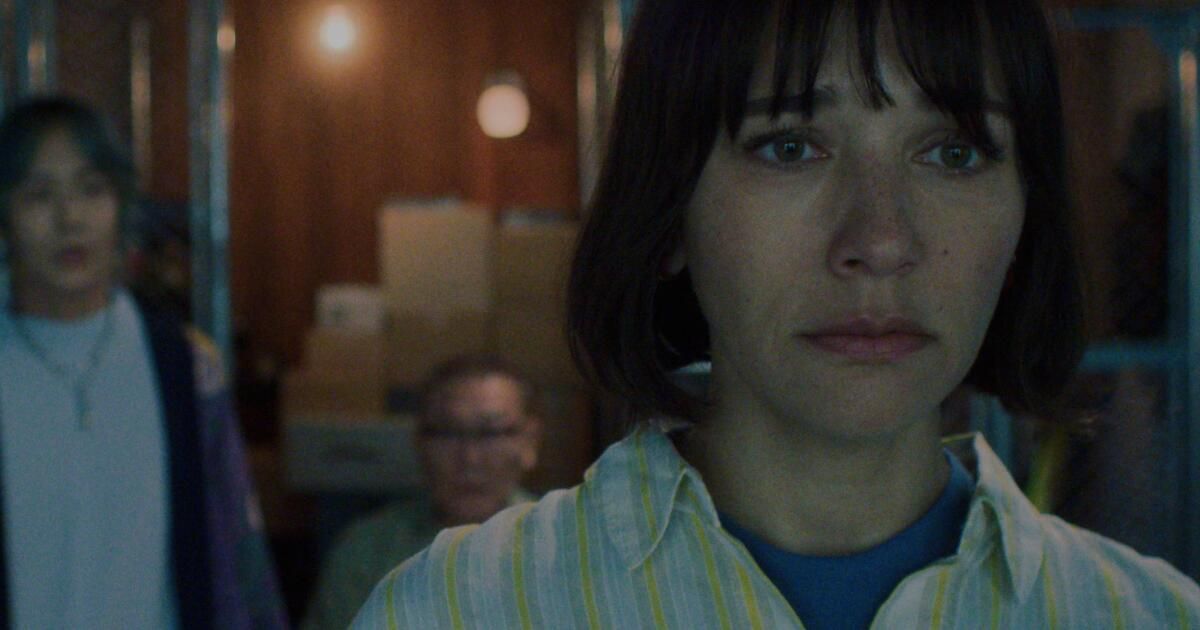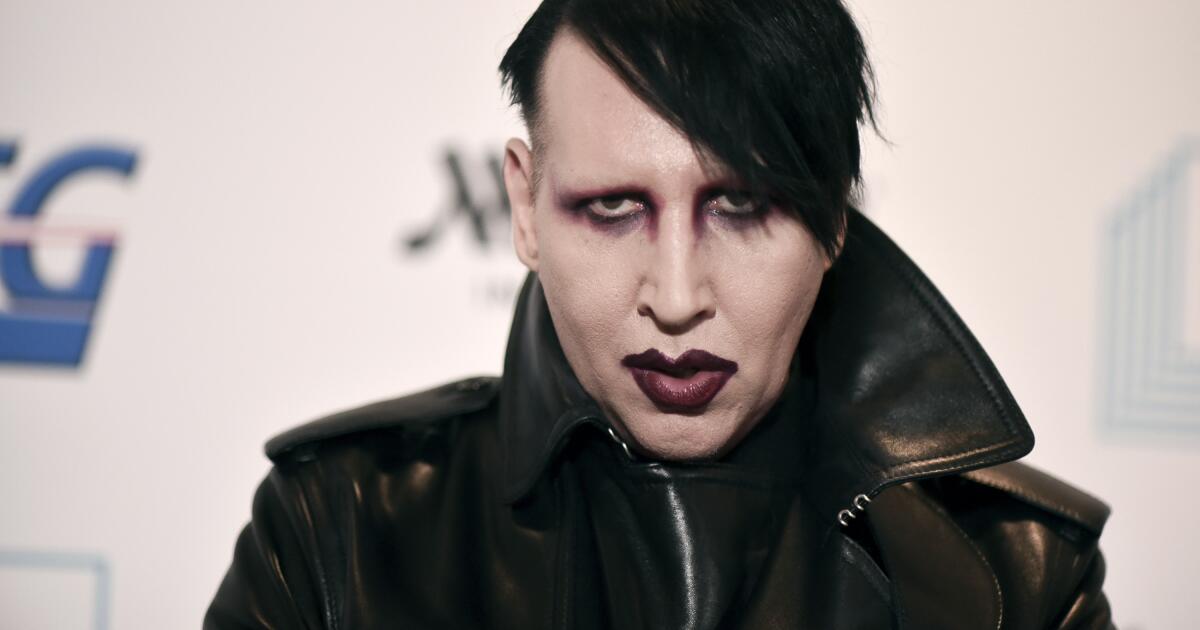In “Sunny,” premiering Wednesday on Apple TV+, Rashida Jones plays Suzie Sakamoto, an American living in near-future Kyoto who apparently lost her Japanese husband and 8-year-old son in a commercial jet crash — though the possibility that things might be otherwise is raised early in the season. As with most mysteries, many things are not as they seem.
Suzie, who refuses to express her grief publicly, finds herself unwittingly given the gift of Sunny (Joanna Sotomura), an apple-white household robot whose adorable Sanrio-esque expressions are displayed on a video screen. She is told this will make her feel less lonely. (“I’m a hugger,” Sunny says, to Suzie’s horror. “Fuck me.”) She has no real friends.
At that point, Suzie learns that Masa (Hidetoshi Nishijima, “Drive My Car”), her husband, was not a refrigeration engineer, as she believed throughout their decade-long relationship, but an important person in the field of cutting-edge robotics; he had personally programmed Sunny for Suzie, I assume, out of some premonitory fear of her eventual absence. Nothing else makes sense, anyway.
(I'm going to call Sunny “she,” because the robot reads like a woman — in Colin O'Sullivan's original novel, “The Dark Manual,” which was later retitled to match the series, she's named Sonny — and because all the other main characters, including the main antagonist, are women. It's her world we're in, not by accident.)
Her early attempts to get rid of Sunny become intertwined with her desire to know who her husband was; there will be murky and unpleasant, if incomplete, discoveries. While drowning her sorrows at the bar where she and Masa were regulars, Suzie meets Mixxy (Clumsy Annie), a new, motley-haired, vivacious waitress who tells her about the Dark Manual, an illegal underground guide to hacking household robots that could allow her to completely unplug Suzie instead of just unreliably putting her to sleep.
It has seemingly less benign applications, too, with each step taking it further into the threads of an overly convoluted plot; dangerous situations follow dangerous situations, with Suzie and Sunny operating as bickering, bantering buddy cops and Mixxy following them out of interest – or is it self-interest? We also see early on that Suzie is under surveillance – by whom? For what? The yakuza eventually become intertwined with the story, which is, frankly, a little disappointing; even the exotic organised crime is ultimately mundane.
At first, it's easy to resist Sunny, because Suzie does, and especially because it's impossible to know whether she might cause harm to her owner. The show's introduction suggests that household robots can go dangerously mad, and Suzie remains suspicious of Sunny even as she slowly begins to accept and trust her. But you grow fond of the robot over time, and in fact, my main concern throughout the season was whether she would treat her well.
Like animals, in a drama or a social media video, sentient machines elicit our sympathy. As soon as we give a robot a face or a voice, or even a vocabulary of beeps, clicks and buzzes, they become emotionally indistinguishable from human characters, no matter how many times someone claims, “It’s just a machine.” If anything, they’re more sympathetic for not being us. Astro Boy. Data. C-3P0. Replicants. HAL 9000’s death is the only heartbreaking moment in “2001: A Space Odyssey.” With her big eyes and soft voice, her attitudes of hope and concern, her ability to dream and get “drunk” on visual feedback loops, Sunny is as much a protagonist as Suzie. (The series is named after her, after all.)
Amidst a mix of secrets, it is suggested that Suzie is hiding something too: she does not answer when Masa, in a long flashback of their meeting, asks her “the real reason” for moving to Japan. Her desire to disappear introduces the real-world concept of hikikomorian extreme form of social avoidance in which people isolate themselves in their rooms, sometimes for years (Masa was one of them). (“It’s not a meditation retreat,” he says, when Suzie expresses interest. “When people looked at me, it hurt.”)
Some plot points feel mechanical, like a Rube Goldberg contraption where the interaction of a boiling kettle, a popping balloon, a frightened cat, and a falling bowling ball is required to, say, ring a bell, when the logical thing to do is to just pick up a stick and hit it; there's a lot of extra energy expended in getting from A to B; I won't say “wasted,” but there's a degree of silliness that you'll have to accept.
The series, created by Katie Robbins, is much more successful when it focuses on personal relationships (I'm including Sunny here, obviously) than on the mystery and conspiracy elements, which are no more engaging or even the point of the journey than the plans of a villain in your average Bond movie. The human mysteries are always more interesting. The thorny relationship between Suzie and her prickly, passive-aggressive mother-in-law, Noriko (actress, singer, woodblock print artist Judy Ongg, quite wonderful) is intentionally frustrating and very well acted.
There are detours along the home stretch, leading to either a twist or a cliffhanger depending on whether or not a second season is coming (it certainly sounds like there's more to talk about). A penultimate episode, which follows the now-common strategy among streaming series of flashing back to the past before ending in the present, gives Nishijima's Masa a welcome wealth of screen time; the episode that follows delves, surreally, into Sunny's head, in search of more backstory and context, while Jones remains almost entirely off-screen.
Whimsical plot aside, it’s easy to watch: It’s beautifully made, designed and photographed, with colorful supporting characters and striking performances by the leads. Jones, best known for “The Office,” “Parks and Recreation” and “Angie Tribeca,” is powerful even inside, though she spends much of her time depressed. There’s not much vanity in her performance and less comedy than usual (the series has some comic lightness, from the brilliant Saul Bass-esque opening credits onward, but it’s rarely funny).
Eventually, she becomes a kind of slow-paced action heroine – think of Doris Day at the climax of “The Man Who Knew Too Much.” The creators may have done that.












